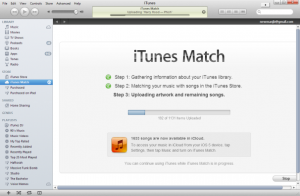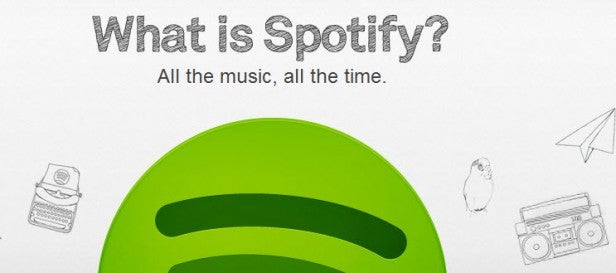Hamstrung: Why Google Music & iTunes Match Give Rivals A Chance

Make no mistake, Google Music is not what Google wanted to launch. “Google is just about at the end of their rope with the major label licensing process,” claims music industry veteran Wayne Russo. The same is true for Amazon and its Cloud Drive and Apple’s iTunes Match money-for-old-rope piracy laundering service (also formally launched this week) is seen by many as a half way house in getting music labels to recognise and commit to a more agreeable digital future. 
The problem is each of these companies is struggling under the weight of its existing commitment to music downloads and they can’t afford to make enemies. This is why streaming services are from new, legacy free organisations and also why Apple, Google and Amazon haven’t been purchasing them with their loose change. Furthermore these organisations remain (if you’ll pardon the pun) under a cloud. On the same day Google Music was receiving its tepid applause it was exposed that Spotify, Napster, Simfy and Rdio had lost over 230 music labels between them. STHoldings, the distributor of these labels, said in a statement it has “concerns that these services cannibalise the revenues of more traditional digital services”.
Taken on surface value this is ludicrous. It is like boycotting the car for its threat to the horse or the biro for its threat to the quill. The problem? As STHoldings continued: “As a distributor we have to do what is best for our labels. The majority of which do not want their music on such services because of the poor revenues and the detrimental affect on sales.” In an ideal world we could convince labels that bands’ records were merely flyers to attract an audience and money was made from gigs, but this is an established multi-billion dollar business model. 
Label’s fears have some weight too. Long deemed fat cats, they are suffering. The music division of EMI was sold to Universal for £1.2bn last week, that being nearly a quarter of the £4.2bn it was sold to private equity firm Terra Firma for in 2007. For them streaming is the new piracy, a way of getting access to their expensively assembled stables of artists for next to nothing. Again it may be a case of Cnut holding back the tide, but many are prepared to drown over it.
All of which means waiting for them to drown or to realise the importance of learning to swim. What is more, their reticence may prove beneficial. Right now there remains room for ownership of both physical and digital media as well as streaming services and in tying the hands of Google, Amazon and Apple record labels are allowing younger, legacy free businesses to prosper and bring much needed new competition. When the streaming battle does kick off, it will be all the greater for it…


